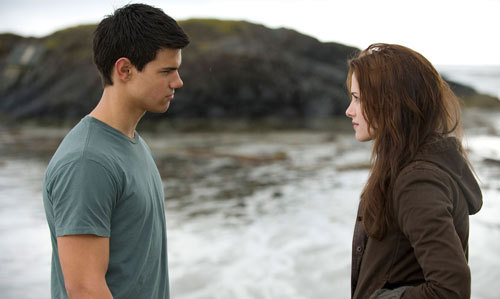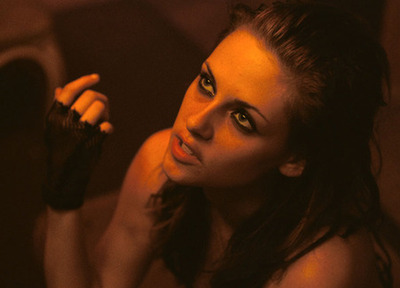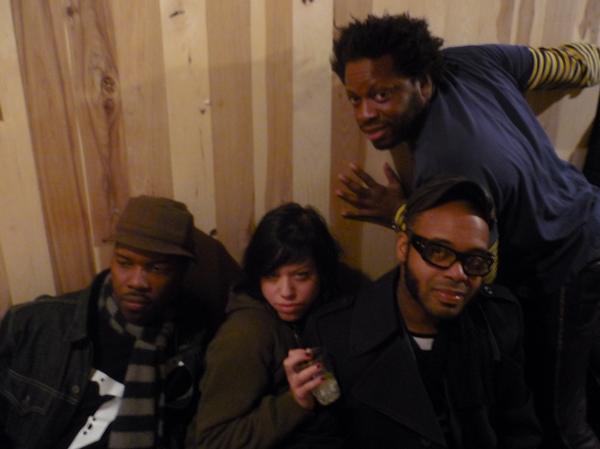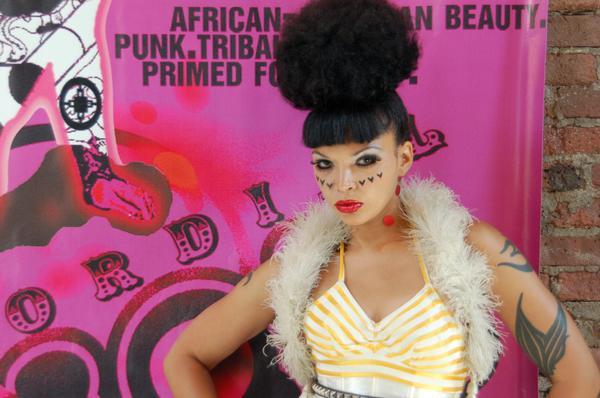 FILM
FILM In Which Harry Potter Answers An Unwelcome Call of Nature
 Monday, November 22, 2010 at 10:25AM
Monday, November 22, 2010 at 10:25AM 
The Boy Who Needed Two Parts
by KARA VANDERBIJL
Harry Potter and the Deathly Hallows: Part 1
dir. David Yates
146 minutes
Watching the first part of the last installment of J.K. Rowling’s celebrated series and sitting through a very long plane ride are uncannily similar. In both cases the tickets cost too much and the food is bad and overpackaged. An unwelcome call of nature inevitably leads to embarrassing encounters with your neighbors’ knees. Your worst enemies are screaming children and giants. The only reason you put yourself through all of this is because it is taking you somewhere you want to be: namely, Harry Potter and the Deathly Hallows: Part 2, which brings me to the issue at hand.

Why is Harry Potter and the Deathly Hallows in two parts? I have a sneaking suspicion that this is the franchise's way of rudely gesturing at its current archrival, Twilight, the fourth installment of which — you guessed it! — is in two parts and also comes out next year. Still, a contest between which love triangle or battle for the universe will win more millions seems a tad immature, although appropriately so. Few books, and even fewer films, are made for something as outdated as cultural, historical or aesthetic significance.

Drawing attention to the resemblances between Twilight and this most recent installment of Harry Potter could scarcely benefit anyone. It is obvious that they resemble each other. If you don't believe me, just think about how from now on, anything including a love triangle and shirtless magical beings will allude to them both. I would much rather ponder about what it is, exactly, that makes Harry Potter and the Deathly Hallows: Part 1 (now I know why most people just say HP7) a bore.

It started out so well! They had us early on — they had us when we were ten in 2001, and we were so easily lured. We were drawn in by our own naiveté and the fact that, like Harry, the thing we knew best was the inside of our own closet. And we found out, like The Boy Who Lived, that there is just a small step between learning what you are and engaging in what will cost you your life — that is to say, your life.

One of the most entertaining aspects of Harry Potter was watching Harry and his friends grow up; it is sobering to realize they are now adults. Did you notice how many times parents and relatives are outdone by their offspring? Hermione doesn't give her parents much of a choice when the Dark Lord comes: she Obliviates them. Harry sends his relatives off packing; even Lucius and Narcissa Malfoy cower behind Draco a few times. As such, Harry and his peers become rebels much in the same way that Voldemort did. It is only the confines of the movie’s plot preventing them from going berserk, drunk on power.

Well, not quite. When the trio infiltrates the Ministry of Magic looking for a locket horcrux, it is amusing not only because of the famous Polyjuice Potion plot device but also because the potion gives them bodies that they wear badly, like new clothes. This discomfort characterizes the whole movie, mostly in scenes involving Harry and Hermione together. They look curiously childish, especially during a scene in which Harry pleads with his best friend to destroy the horcrux. As the locket explodes and Voldemort's soul seeps out, Ron is confronted with his worst nightmare: a world in which he is not needed or wanted. Spectres of Harry and Hermione engage in an embrace which expresses what they feel but don’t dare express, trapped as they are in that strange space between childhood and adulthood.

This partially funny, partially painful tension between Harry, Ron and Hermione strikes a chord in the film that it never did in the book, since the film version of Harry constantly attempts to come onto her where his print counterpart was content with Ginny. The extended slow dance in the tent between Harry and Hermione, as well as their almost-kiss will spawn a decade's worth of fanfiction among faithful Harry/Hermione supporters. Never mind that the film could have been doing something much more interesting at this point. As always, Ron's inexhaustible comic relief throughout is comforting, proving once and for all that even after ten years some things never change. Ultimately, this is why Hermione will end up with him. Everything comes back to logic.

Meanwhile Harry pulls a Bella Swan and claims he's not worth dying for (conveniently after Mad-Eye already has), and also begins to engage in self-destructive behavior. I lost several imaginary extremities to imaginary frostbite every time I saw him diving into freezing water and walking around barefoot in the snow.

Speaking of clothes, the wizards are substantially underdressed for the weather. Only an Urban Outfitters model (and hobbits) can pose in snowy climes barefoot and wearing nothing but a pea coat, thank you very much. Later, the cast dons flannel and jeans on the beach while mourning the death of a house elf. I had forgotten that part from the book, but was so distracted by Harry's wet denim and sandy knees (pet peeve!) that I could not sympathize.

Visually, Yates' direction doesn't disappoint. The spirited animation of the tale of the three brothers constitutes a welcome refuge from the film's ubiquitous forest settings. Forlorn landscapes reminiscent of Forks, US of A engage in an almost Romantic entanglement with Harry's moods. At one point, I could have almost sworn Yates replicated Wanderer above the Sea of Fog. The magical creatures are fewer in this film than in previous ones, which is probably why they felt forced.

When Kreacher appeared, I wanted to ask why there was an elf in the cupboard, and then remembered where I was. And like anything else, Voldemort was far scarier when nobody said his name and when he didn't have a corporeal body. The faceless intruder in your closet is always scarier than the one you can identify. He is especially (and only) scary when you can't remember what films he had a nose in and when he played Heathcliff opposite Juliette Binoche.

We saw far too much of him, and far too little of all the people I really wanted to see: Harry’s parents, Snape (although we did see his Patronus), and a fully clothed Ginny Weasley. I suppose that we will have to wait another six months for the real fun to begin, and by that I mean that we will actually be able to shed this dust jacket of a first part and dive into the crooked binding of J.K Rowling’s imagination, if you will excuse the poorly executed metaphor. See you in 2011.
Kara VanderBijl is the senior contributor to This Recording. She is a writer living in Chicago. You can find her previous work on This Recording here. She last wrote in these pages about Rene Magritte. She tumbls here.

"Talk You Down" - The Script (mp3)
"Breakeven" - The Script (mp3)
"The Man Who Can't Be Moved" - The Script (mp3)























































